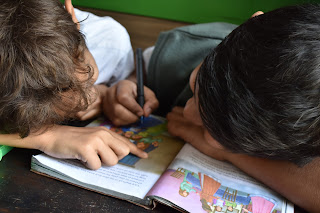Today we are concluding our series on early childhood learning by former Yellin Center Learning Specialist Renée Jordan.
In the 1960’s, a pilot project, called the Perry Preschool Project, was conducted that gave children access to a preschool experience and supplemental home learning using high-quality programming that was designed to develop their cognitive, motor and social-emotional skills.
Initial participants in the Perry Preschool Project showed greater academic achievement, as well as higher income earning later in life when compared to a control group (those who hadn’t had access to early learning). Participants also had higher graduation rates and IQ scores, as well as reduced incarceration rates and a higher likelihood to own their own homes.
Recently, researchers followed up with participants (now in their 50s) to see if these significant positive outcomes held -and they did. Not only that, but when researchers looked at the participants' children, they saw generational gains in terms of academic achievement and income.
One interesting element of the Perry Preschool Project is that it included home learning support using the same rich educational programming. When parents and childcare providers provide developmentally appropriate materials and time for children to play with them, children reap immeasurable benefits that set them up for success in school and in life.
However, it can be tricky as a parent or care provider to know what early childhood skills your child should be developing. Thankfully, there are resources, like Earlybird, that give you the information you need about child development, and the no-prep activities and materials you need to apply that learning.
Photo by Andrew Ebrahim on Unsplash









